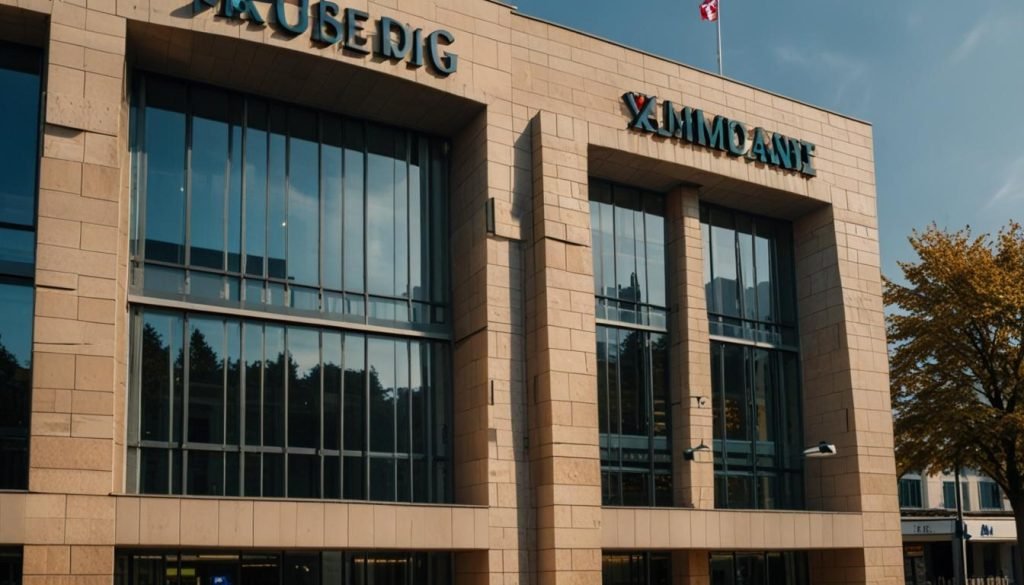The financial sector in Luxembourg is facing rising challenges due to the increasing costs of compliance with KYC and AML regulations, impacting profitability and operational decisions.
Luxembourg Banks Grapple with KYC and AML Procedures Amid Rising Compliance Costs
Luxembourg – The financial sector in Luxembourg is facing mounting challenges due to the increasing complexity and cost of compliance with Know Your Customer (KYC) and Anti-Money Laundering (AML) regulations. These regulatory constraints have significantly impacted the profitability of banks, leading to significant decisions and operational adjustments within the industry.
Nasir Zubairi, CEO of the Luxembourg House of Financial Technology (Lhoft), highlighted the significant financial burden KYC procedures impose on European banks. “Compliance costs in Europe amount to around €100bn annually, with KYC accounting for a significant share of that—between 10 and 15%, depending on the source,” he explained. These processes are not only costly but also create friction with customers due to the exhaustive steps required to open accounts.
The gravity of these challenges was underscored in May when ING announced its decision to cease retail banking operations in Luxembourg. Jerry Grbic, CEO of the Luxembourg Bankers’ Association (ABBL), commented on this in an interview with Paperjam, reflecting on the broader implications of ING’s exit. “The challenges involved in opening and monitoring accounts probably influenced ING’s decision to leave the market, judging the business to be insufficiently profitable given the regulatory constraints,” Grbic noted. “The ING case crystallises the difficulties linked to KYC.”
To manage these intricate compliance requirements, banks employ a variety of software solutions for AML and KYC procedures. However, the specifics around the number and types of software used often remain vague. For instance, ING Luxembourg has refrained from disclosing the exact number of AML/KYC software systems it utilises, citing the complexity and integration of these tools into their IT systems. They acknowledged the use of both internal and external software solutions for various aspects of KYC, such as customer due diligence, transaction monitoring, and client and transaction screening, and emphasised the ongoing need for investment and updates due to regulatory developments.
In contrast, other banks have been more transparent. Raiffeisen Bank disclosed that it employs five different software systems, including one dedicated to KYC and four for AML. On the other hand, Quintet Bank uses eight solutions for AML, six of which are specifically for KYC.
Discussing the intricacies of these systems, Nasir Zubairi elaborated, “Typically, institutions have one solution for data capture, another for basic checks against databases like politically exposed persons (PEP) and beneficial owners, and others for risk assessment and transaction monitoring.” This fragmentation dates back to the analog era when institutions implemented multiple systems due to the lack of a comprehensive solution.
Zubairi also pointed out the difficulties in transforming these legacy systems. “Transforming an analog business to digital is incredibly hard,” he stressed. Many financial institutions added quick fixes over time to address specific issues, resulting in duplication and inefficiencies. Despite the challenges, the banks’ complexity varies based on their focus, compliance requirements, and risk appetite. For example, commercial banks dealing with both retail and corporate markets may encounter very complex corporate structures, while private banks serving ultra-high-net-worth individuals might manage intricate wealth management structures.
In a bid to manage these challenges and mitigate costs, the Luxembourg financial sector is looking towards the mutualisation of KYC processes. Switzerland presents a model where full integration of solutions is a priority, aiming to reduce costs associated with manual data entry during client onboarding.
In conclusion, while AML/KYC procedures are essential for regulatory compliance and financial integrity, they pose significant operational and financial challenges for banks. The balancing act of maintaining robust compliance measures while managing costs and enhancing customer experience continues to be a pivotal issue for the financial institutions in Luxembourg and across Europe.
Source: Noah Wire Services


